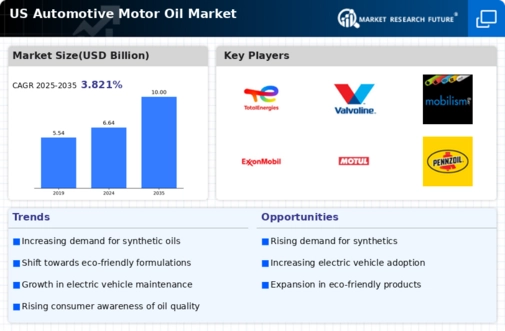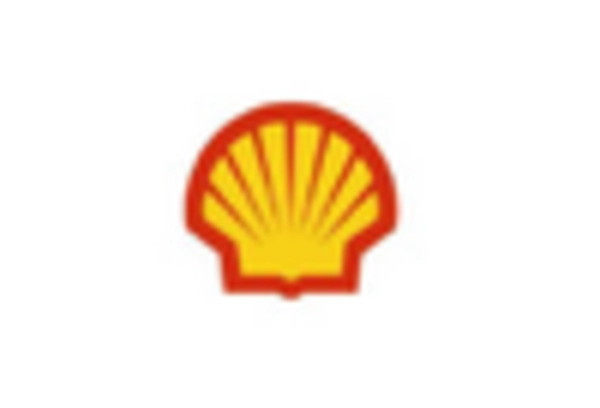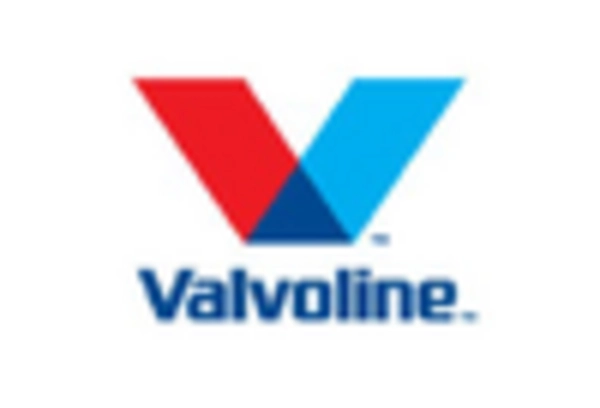The automotive motor-oil market in the US is characterized by a competitive landscape that is both dynamic and multifaceted. Key growth drivers include the increasing demand for high-performance lubricants, the rising awareness of vehicle maintenance, and the ongoing transition towards more sustainable products. Major players such as ExxonMobil (US), Chevron (US), and Valvoline (US) are strategically positioned to leverage these trends. ExxonMobil (US) focuses on innovation in synthetic oil formulations, while Chevron (US) emphasizes its commitment to sustainability through eco-friendly product lines. Valvoline (US) has adopted a customer-centric approach, enhancing its service offerings and expanding its retail footprint, which collectively shapes a competitive environment that is increasingly focused on differentiation through quality and service.The market structure appears moderately fragmented, with several key players holding substantial market shares. Business tactics such as localizing manufacturing and optimizing supply chains are prevalent among these companies. For instance, ExxonMobil (US) has invested in advanced manufacturing technologies to streamline production processes, thereby reducing costs and improving efficiency. This collective influence of major players fosters a competitive atmosphere where innovation and operational excellence are paramount.
In October Chevron (US) announced a strategic partnership with a leading technology firm to develop AI-driven solutions for predictive maintenance in vehicles. This initiative is likely to enhance Chevron's product offerings by integrating advanced analytics into their motor-oil products, thereby providing customers with tailored solutions that improve engine performance and longevity. Such a move not only positions Chevron (US) as a forward-thinking player but also aligns with the growing trend of digitalization in the automotive sector.
In September Valvoline (US) launched a new line of eco-friendly motor oils, which are formulated from renewable resources. This strategic action reflects Valvoline's commitment to sustainability and caters to the increasing consumer demand for environmentally responsible products. By positioning itself as a leader in sustainable motor oils, Valvoline (US) is likely to attract a broader customer base, particularly among environmentally conscious consumers.
In August ExxonMobil (US) expanded its distribution network by acquiring a regional distributor, thereby enhancing its market reach and operational capabilities. This acquisition is significant as it allows ExxonMobil (US) to better serve its customers and respond swiftly to market demands. The integration of this distributor is expected to streamline logistics and improve service delivery, reinforcing ExxonMobil's competitive edge in the market.
As of November current competitive trends are increasingly defined by digitalization, sustainability, and the integration of AI technologies. Strategic alliances are shaping the landscape, enabling companies to pool resources and expertise to innovate more effectively. The competitive differentiation is likely to evolve from traditional price-based competition towards a focus on innovation, technology, and supply chain reliability. Companies that can successfully navigate these trends will likely secure a stronger foothold in the automotive motor-oil market.
















